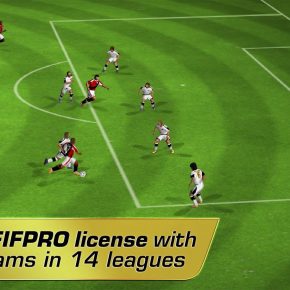


He then started a career as an agent and pundit, before becoming chief executive of the Scottish Football Association in 2007, a post he held until 2010. Gordon Smith - After a 17-year playing career that included spells with Rangers, Brighton and Manchester City, Smith was St Mirren’s assistant manager from 1990 to 1993. He is chairman of the BOA and the National Lottery operator Camelot.Ĭhairman of the London Organising Commitee for the Olympic and Paralympic Games Lord Seb Coe and Minister for Sport and Olympics Hugh Robertson (Photo: Tim Whitby/Getty Images for Eurostar) He was the MP for Faversham and Mid Kent between 2001 to 2015, during which time he served as Minister for Sport and the Olympics, and Minister for State for Foreign Affairs and the Commonwealth. Sir Hugh Robertson - Another former soldier, Robertson became a banker after leaving the army before starting a career in politics. He runs a community sports network in Hertfordshire. Between 20, he was chief executive of the Irish Football Association. Howard Wells - Became the first chief executive of Olympic and Paralympic funding agency UK Sport in 1996, before stints in charge of Watford and Ipswich Town. He left the national governing body in 2015 and is now an advisor for several sports-related businesses. He is now a businessman and sports consultant.Īlex Horne - Having joined the FA’s finance department in 2004, Horne became managing director of Wembley Stadium in 2006, chief operating officer of the Football Association in 2008 and chief executive in 2010. He quit the BOA in 2008 and was Ipswich Town’s chief executive between 20.

Simon Clegg - A former soldier and biathlete, Clegg joined the British Olympic Association in 1989 and became its first chief executive in 1997. Here we explain why, as told by seven men who played key roles in getting the team - and, in particular, that squad of 13 Englishmen and five Welshmen - to Old Trafford, Wembley and Cardiff’s Millennium Stadium. (Front L-R) Daniel Sturridge, Tom Cleverley, Jack Cork, Joe Allen, Neil Taylor, Danny Rose, Micah Richards and James Tomkins in the athletes’ village in July 2012 (Photo: John Stillwell – WPA Pool/Getty Images) (Back L-R) Steven Caulker, Jack Butland, Ryan Giggs, Craig Dawson, Aaron Ramsey, Jason Steele, manager Stuart Pearce, Ryan Bertrand, Scott Sinclair, Marvin Sordell, Craig Bellamy. Whereas the women’s team were back for the postponed 2021 Games in Tokyo, London 2012 was the first time Britain took part in the men’s Olympic football event for 52 years and it was almost certainly the last, too. What follows is an account of the seven-year debate about whether Britain should even play men’s Olympic football, why it was important to London 2012’s organisers that they did and how the nationwide competition fitted with the rest of the Games. For all that was weird and wonderful about the football at London 2012, some of it was depressingly familiar.

Nine days later, their Olympic dreams were over, beaten in the quarter-finals by South Korea on penalties. Today marks the 10th anniversary of Team GB’s first game in the men’s tournament, a 1-1 draw with Senegal at Old Trafford. It was the competition that turned Craig Dawson, Joe Allen and Marvin Sordell into Olympians, while London 2012 ambassador David Beckham did not make the cut. It was a global football tournament that featured the rising talents of Sadio Mane, Neymar and Mohamed Salah but an absolutely stacked Brazil side somehow failed to win, losing to Mexico in the final. It was the London 2012 Olympic event that started before the opening ceremony and was played in Cardiff, Coventry, Glasgow, Manchester and Newcastle.


 0 kommentar(er)
0 kommentar(er)
